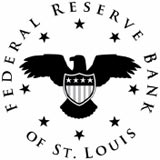Article from: www.thenewspaper.com/news/13/1388.asp
10/13/2006
Study: Traffic Tickets Rise as City Income Falls
A Federal Reserve Bank working paper concludes that revenue maximization is a primary motivation behind traffic ticket enforcement.
 A Federal Reserve Bank of Saint Louis working paper concludes that municipalities use traffic tickets as a means of supplanting falling local revenue. Economist Thomas A. Garrett and University of Arkansas at Little Rock Professor Gary A. Wagner explain that although there is ample anecdotal evidence to show that this is the case, no empirical studies have ever examined the question in detail.
A Federal Reserve Bank of Saint Louis working paper concludes that municipalities use traffic tickets as a means of supplanting falling local revenue. Economist Thomas A. Garrett and University of Arkansas at Little Rock Professor Gary A. Wagner explain that although there is ample anecdotal evidence to show that this is the case, no empirical studies have ever examined the question in detail.
Using county-level data from North Carolina between 1989 and 2003, the working paper analysis takes into account demographic factors such as population and traffic growth that could influence the number of tickets written for offenses such as speeding, failure to yield and following too closely. Some counties issued as many as one ticket for every resident, while the average was closer to one ticket for every ten residents.
Garrett and Wagner found that for each one-percent drop in local government revenue there followed a .38 percent increase in the number of tickets written, each worth between $5 and $250. When local revenue increased, however, there was no corresponding decrease in the number of citations issued.
"The fact that local governments increase traffic tickets during periods of revenue decreases but do not decrease traffic tickets in response to revenue increases reveals some degree of revenue maximization on the part of local governments," the authors concluded.
The full text of the working paper is available in a 570k PDF file at the source link below.
Source: Are Traffic Tickets Countercyclical? (Federal Reserve Bank of St. Louis, 8/30/2006)
Permanent Link for this item
Return to Front Page
 A Federal Reserve Bank of Saint Louis working paper concludes that municipalities use traffic tickets as a means of supplanting falling local revenue. Economist Thomas A. Garrett and University of Arkansas at Little Rock Professor Gary A. Wagner explain that although there is ample anecdotal evidence to show that this is the case, no empirical studies have ever examined the question in detail.
A Federal Reserve Bank of Saint Louis working paper concludes that municipalities use traffic tickets as a means of supplanting falling local revenue. Economist Thomas A. Garrett and University of Arkansas at Little Rock Professor Gary A. Wagner explain that although there is ample anecdotal evidence to show that this is the case, no empirical studies have ever examined the question in detail.